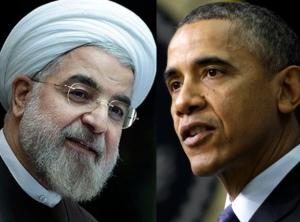 Yesterday, the announcement came of a landmark nuclear deal with Iran, and it already looks like discontent with the deal is brewing in the US over elements that critics have accused of “capitulation”. Speaking yesterday morning from the White House, Obama hailed the agreement as a breakthrough that stopped the spread of nuclear weapons in the region, although not everybody seems to agree, and the debate is far from over.
Yesterday, the announcement came of a landmark nuclear deal with Iran, and it already looks like discontent with the deal is brewing in the US over elements that critics have accused of “capitulation”. Speaking yesterday morning from the White House, Obama hailed the agreement as a breakthrough that stopped the spread of nuclear weapons in the region, although not everybody seems to agree, and the debate is far from over.
Under legislation approved earlier this year, Congress will be able to approve or reject the terms of the truce after a 60-day review period. Although lawmakers might not be able to block the entire deal, they can still keep US sanctions in place. With this potential veto showdown coming up, Obama faces a tough task ahead of him, only compounded by the fact that this vote could easily slip into September, where wavering lawmakers could face pressure from voters and advocacy groups. While Obama has stated that he welcomes a “robust debate” on the issue, he might be getting more than he’d hoped.
In the hours after the deal was announced, US lawmakers listed several complaints; saying that despite the restrictions that the deal imposes, it could end up triggering an arms race in the Middle East by legitimizing Iran’s nuclear program. Lawmakers have been pointing to at least two other provisions: one that gives Iran leverage over its own nuclear site inspections, and another that could lift the UN arms and missile tech restrictions on Iran in the upcoming years. Under the agreement, the UN arms embargo could be lifted after five years, and the restrictions on ballistic missile technology could be lifted after eight. The potential deal could also give Iran leverage over the inspection process, since various factors give Iran a chance to draw out the inspection process for up to 24 days.
In response to supposed attempts to undo the deal, Obama didn’t hesitate to remind listeners that he has the veto pen. To reject the agreement, Congress needs a majority vote, although to override a presidential veto, each chamber would need to come up with a two-thirds majority. The main factor seems to be whether or not Obama will be able to convince enough Democrats to stick by him. So far, influential Democratic lawmakers have refused to take any position on the deal. Lawmakers on both side of the political spectrum seem sure to face pressure from pro-Israel groups, who feel that the deal puts Israel at risk; Netanyahu has blasted the announcement as a “historic mistake” that will “fuel Iran’s terrorism worldwide”.